Guangming Daily reporter Wang se, Guangming Daily correspondent Li jianpo
Walk into aketikan village, xincaohu Township, which is located 14 kilometers south of Luntai County, Bayingolin Mongolian Autonomous Prefecture, Xinjiang. It was a Gobi desert before 2002, and now it has become a new ecological migration village.
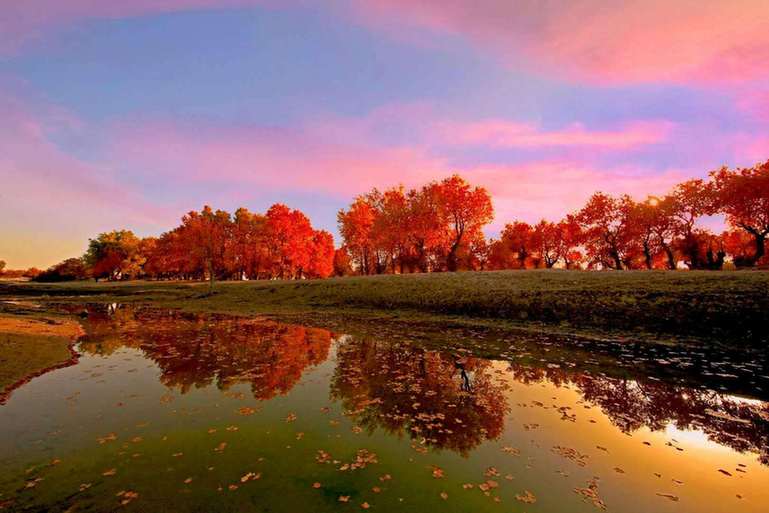
Photo by correspondent Liu Jianfu
In front of the villagers' cultural activity square, a row of orderly front rooms are particularly eye-catching: post offices, shops, restaurants, repair shops... There are all kinds of necessities for people's production and life. Baharguli Shapur, 56, runs a shop here.
At the door of baharguli Shapur's shop, saniye Abulimiti, her daughter, is helping her mother replenish the freezer. Her daughter is sensible and filial. She studies very hard and has been admitted to China University of petroleum. This is the most proud and gratifying thing for Bahar Guli Shapur.
In her memory, laocaohu, where she lived for generations before, had no asphalt road and closed traffic. It was 100 kilometers away from the county seat. If you want to go to the county town once, you need to drive a carriage for two days and take a tractor for one day. Many children in the village have never been out of the countryside after graduating from junior high school, and even some people have never been out of the countryside in their whole life. In such an atmosphere, it is very difficult to succeed in learning.
The Tarim River, which meanders 1321 kilometers, is the longest inland river in China. For a long time, the natural Populus euphratica forest and shrubbery belt with a length of 100 km and a total area of 1.47 million mu distributed in the middle reaches of the Tarim River is the barrier to maintain oasis ecology and production safety. In the 20th century, due to the increase of water use in the upper and middle reaches of the Tarim River, more than 360 kilometers of the lower reaches of the Tarim River were completely cut off, resulting in the death of large areas of Populus euphratica forests on both sides of the lower reaches. The green barrier separating the Taklimakan Desert and Kumtag Desert was almost destroyed, and the two deserts showed a "handshake" trend.
Since 2002, Luntai County, located in the middle reaches of the Tarim River, has started the implementation of the Tarim River Control and resettlement project in order to prevent the closure of the two deserts and make the green corridor reappear along the Tarim River. Laocaohu was once one of the driest areas in China, with annual evaporation more than 30 times of rainfall. The area of Populus euphratica forest here has declined sharply, and the most serious area has decreased by about 60%. Laocaohu was removed from the original Populus euphratica forest area along the Tarim River, and all the more than 10000 mu of farmland withdrawn were planted with ecological forests.
Speaking of what happened in those years, aziguli still remembers that when we first moved away from Caohu Township, we were reluctant to part with our hometown and had many doubts about our future life. Now we think that "indignation" is "ridiculous".
Aziguli said: "in November 2002, I left laocaohu with a lamb in my arms. My heart was very sad and my eyes were full of tears. I sat in the place where the lamb often ate grass for more than half an hour before I left silently. At that time, I felt that only here was the best, and it would not be good anywhere. "
After moving to a new place, azguri didn't laugh for at least half a year. With the construction of new immigrant villages getting better and better, the implementation of immigration policies getting more and more in place, and the scale of xincaohu Township becoming more and more large, her mood gradually improved. Aziguli said, "when you come to xincaohu, the government will give you subsidies for farming, raising sheep, raising chickens, buying agricultural machinery, buying household appliances, etc; Children are free of charge from primary school to senior high school; If the old people can't work, the government will give them a pension; Everyone has medical insurance to see a doctor... I don't know how many times better this good day is than my hometown. Here is the best. "
Nearly 20 years later, the ecological environment of laocaohu lake has been improving day by day. Lakes, wetlands and rivers are intertwined everywhere. Populus euphratica, known as "desert hero tree", and tough red willows are all over the Tarim River. Egrets, yellow ducks, black storks, yellow sheep and other wild animals appear in the trees and lakes, showing a scene of "sunset and solitary ducks flying together, The beautiful ecological picture of "autumn water and sky are the same color" has increasingly highlighted the role of ecological barrier.
Maihemuti mamuti, a villager, lived in laocaohu for 27 years and witnessed the hard life in his hometown. One of the few happy times in his memory was the three hours he spent watching TV with his friends“ At that time, the power supply started at 8 o'clock every night, and we were all crowded in our neighbors' homes with TV. When the power went out at 11 o'clock, we were reluctant to leave. How nice it is now. We are the real beneficiaries of ecological relocation. If you look at our happy life now, you can't even think about it before. " Mahuti mahuti talked about his life after relocation. His face was full of pride and gratitude, and he gave a thumbs up.
Maihemuti mamuti transferred all the 20 mu of land in his family. He became a full-time village cadre himself. His wife opened a supermarket in the village, and the net income of the whole family reached 150000 yuan a year. Last year, the mamuti family bought an off-road vehicle and built a new house, making their life more prosperous.
After the desire to learn and teach, to work and earn, to treat the sick, to provide for the elderly, and to live and live has become a reality, all the worries and bad emotions of the past have disappeared. In particular, after the implementation of the Tarim River Ecological Water Transfer Project, through the work of returning farmland to forest, grazing to grass, artificial afforestation, drip irrigation greening, and the rejuvenation of Populus euphratica forest, especially after the Tarim Populus euphratica forest reserve with an area of nearly 390000 hectares was incorporated into the National Nature reserve for management, Luntai Populus euphratica Forest Park was upgraded to a national forest park, The ecological environment of Tarim River Basin has changed greatly.
They moved out of laocaohu, but every year Caohu Township organized cadres and masses to form a volunteer service team to come to laocaohu in the peak tourist season to help the staff of the management and Protection Station maintain the sanitary environment“ It will always be our home and we want it to be more beautiful. " Speaking of volunteer service, Maimaiti asimu, the 46 year old Party branch secretary of akekumu village who has lived in laocaohu for 28 years, said with pride.
Fan Weimin, Secretary of the Party group and deputy director of the forestry and grassland Bureau of Luntai County, said that after years of efforts, the concept of ecological environmental protection has taken root and germinated in Luntai County, and a sustainable development path of ecological engineering supported by ecological industry has been basically explored at the edge of the desert. Now, there is the Populus euphratica forest region with the largest area, the most complete preservation and the original landscape in China. The planting of white apricot, fragrant pear, grape, pomegranate, walnut, apple, plum and peach is gradually on a large scale. The ecological immigration project has achieved remarkable results and effectively improved the ecological carrying capacity.
"The wild animals that left here before have come back from all directions, and the vegetation is becoming more and more lush. I am very glad to see that it is getting better and better day by day." Baihatiya aimail, a staff member of laocaohu Populus euphratica forest management and protection station, pointed to egrets foraging in the wetland.
Guangming Daily (July 10, 2020 edition 04)
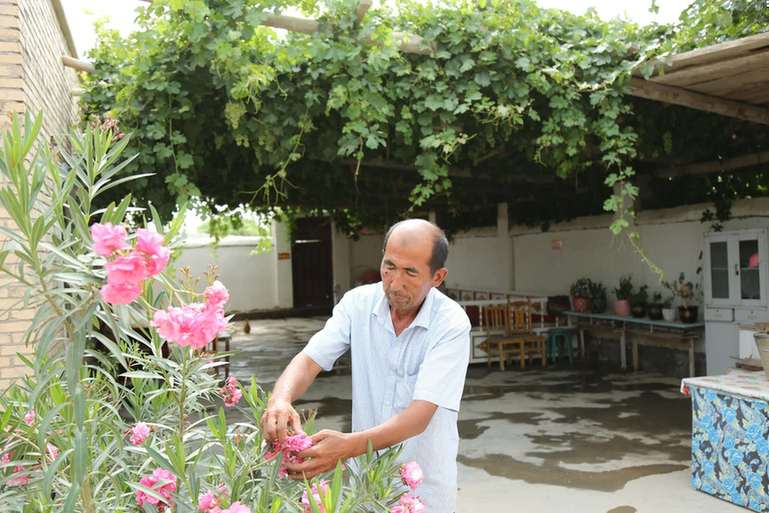
Photo by correspondent Liu Jianfu
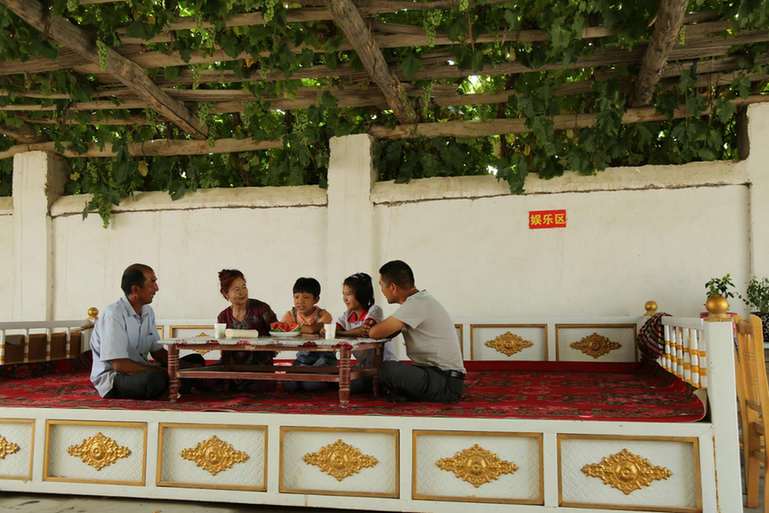
Photo by correspondent Liu Jianfu
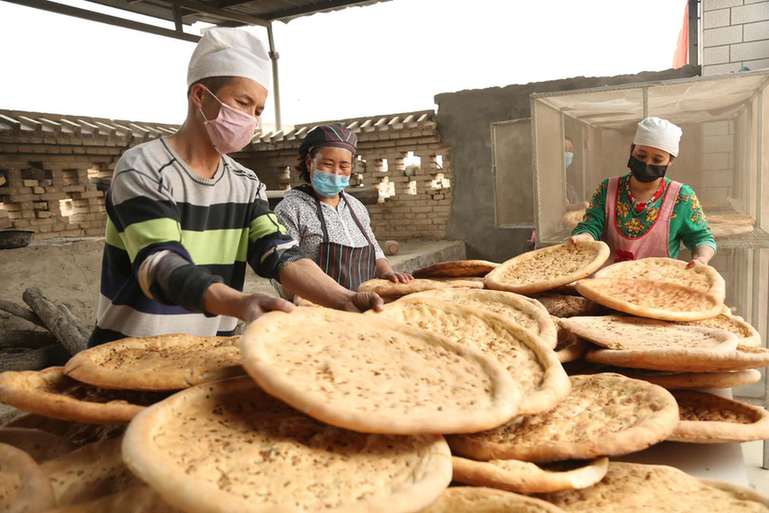
Photo by correspondent Liu Jianfu
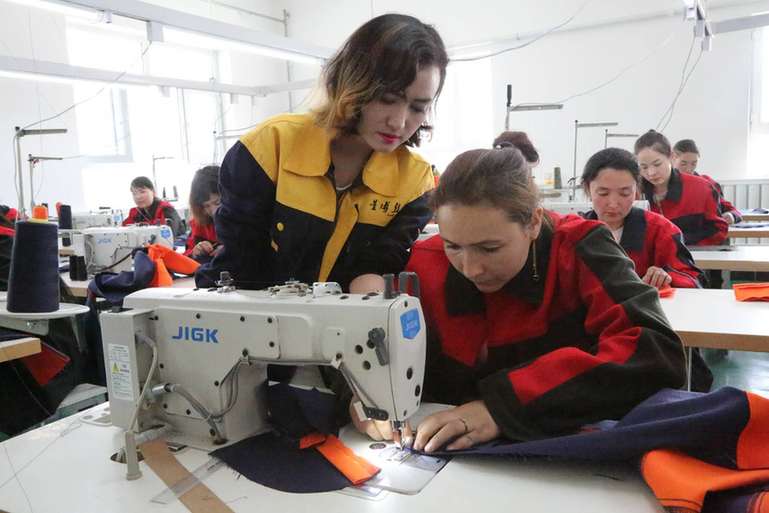
Photo by correspondent Liu Jianfu



